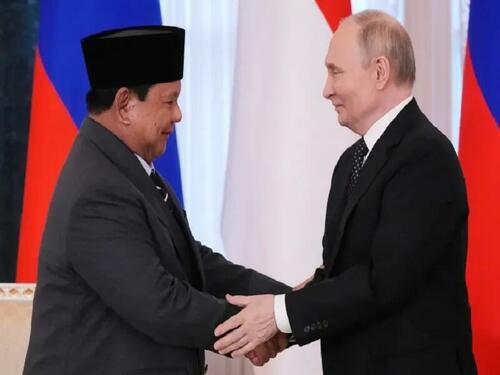AAP Received Tens of Millions in Federal Funding to Push Vaccines and Combat ‘Misinformation’

Source: Children’s Health Defense
The American Academy of Pediatrics (AAP), which is suing U.S. Health Secretary Robert F. Kennedy Jr., and has called for the end to religious exemptions, received tens of millions of dollars in federal funding in a single year, according to public records.
AAP, which represents 67,000 pediatricians in the U.S., received $34,974,759 in government grants during the 2023 fiscal year, according to the organization’s most recent tax disclosure. The grants are itemized in the AAP’s single audit report for 2023-2024.
Documents show some of the money was used to advance childhood vaccination in the U.S. and abroad, target medical “misinformation” and “disinformation” online, develop a Regional Pediatric Pandemic Network, and highlight telehealth for children.
However, not all of the money could be tracked through public records.
The federal grants are in addition to financial contributions the AAP receives from several major pharmaceutical companies, including Eli Lilly, GSK, Merck, Moderna and Sanofi.
Sayer Ji, founder of GreenMedInfo and co-founder of Stand for Health Freedom, said the joint funding that the AAP receives from taxpayers and Big Pharma “reflects a troubling alignment between its policy positions and the interests of its largest funders — both federal agencies and pharmaceutical corporations.”
He added:
“Federal grants tied to vaccination programs, pandemic preparedness and public health messaging create an inherent conflict of interest when the same organization actively lobbies against religious and personal exemptions, promotes universal uptake of COVID-19 shots in children and pregnant women, and funds or publishes research that omits clear stratification of outcomes by vaccination status.”
The AAP is also a lobbying organization. It spent between $748,000 and $1.18 million annually over the previous six years to advocate for its members, according to Open Secrets.
Last month, the AAP was one of six medical organizations that sued Kennedy and other public health officials and agencies over recent changes to COVID-19 vaccine recommendations for children and pregnant women.
Also last month, the AAP called for an end to religious and philosophical vaccine exemptions for children attending daycare and school in the U.S.
‘AAP has been on the wrong side of a number of child health issues’
Dr. Meryl Nass, founder of Door to Freedom, said, “Historically, the AAP has hidden its funding sources” and “it has been impossible to learn exactly what the quid pro quo is — in other words, what that money earns.”
“All we know is that the AAP has been on the wrong side of a number of child health issues, with vaccine mandates in particular being a point of contention,” Nass said.
Journalist Paul D. Thacker, a former U.S. Senate investigator, said organizations like the AAP have “pervasive” ties to Big Pharma despite receiving taxpayer funds. He said:
“When I was working to pass the Physician Payments Sunshine Act that requires corporations to disclose payments to doctors, we were aware that many physician organizations and patient advocacy groups are wallowing in Pharma cash. We sent dozens of letters to physician groups to uncover their Pharma ties, and the money is pervasive.”
Taxpayer money helped AAP promote child vaccination in Madagascar
The AAP’s single audit report also showed that the organization received $257,607 in a pass-through grant for the Accessible Continuum of Care and Essential Services Sustained (ACCESS) Program in Madagascar — a program of the U.S. Agency for International Development.
The ACCESS Program sought to integrate “nutrition, vaccination, and treatment of common illnesses into primary health care services” in Madagascar.
This included the promotion of childhood vaccination in the country. According to ACCESS, the program helped train vaccination teams and “improve accessibility through the establishment of vaccine sites and mobile clinics.”
As a result, “the coverage rate among infants for the pentavalent vaccine, which protects against five life-threatening diseases, increased from 75% to 83%,” according to ACCESS. The vaccine — intended to protect against diphtheria, tetanus, pertussis, hepatitis B and Haemophilus influenzae type B or Hib infections — has been associated with infant deaths.
AAP used federal funds to create online guide warning of ‘misinformation’
The AAP received over $1.9 million in funding for the development of the AAP Center of Excellence, an online guide to promote “a healthy digital ecosystem for children and youth.”
A portion of this guide is devoted to identifying “sources of mis- and disinformation on social media”:
“While teens note coming across ‘fake news’ and health-focused mis/disinformation online, they described that they still trust some social media platforms because the convenience and accessibility of platforms make them appealing.”
The guide presents strategies to “become a critical consumer of health information online,” including identifying “fishy features that can help distinguish mis/disinformation from trustworthy health information online.”
Another section of the guide provides advice to patients on how to locate “trusted health information” online:
“We know that adolescents look online for health information for several reasons including ease of access, for privacy, or to find others with similar lived experience. … The health information that they find online and on social media may vary in quality and may contain misinformation or even disinformation which can be harmful to patients.”
The guide encouraged clinicians to “preemptively share health information resources from reputable sources” on specific health topics that teens may have questions about and direct patients toward “digital literacy resources to learn strategies to identify misinformation and disinformation.”
AAP received funds to promote telehealth for kids
The AAP also received grants of $537,578, $126,670 and $71,625 for the promotion of telehealth and telemedicine services for pediatric patients.
A pass-through grant from the University of North Carolina at Chapel Hill, totaling $71,625, was for the promotion of the SPROUT-CTSA Collaborative Telehealth Research Network.
The SPROUT (Supporting Pediatric Research on Outcomes and Utilization of Telehealth) Collaborative is a group of institutions and pediatric providers operating within the AAP to focus on pediatric telehealth.
“The ultimate goal is to establish an infrastructure that removes barriers to efficient telehealth research across large geographic areas,” according to a National Institutes of Health news release.
The program was announced on March 17, 2020, just as COVID-19 restrictions and lockdowns were being introduced in the U.S. and globally.
Despite its rising prevalence in pediatric care, some pediatricians are critical of offering health services to children via telehealth platforms.
In an interview with The Defender last month, pediatrician Dr. Michelle Perro said, “Telehealth is valuable, but when pediatric care becomes dominated by virtual visits, we lose the subtle clinical observations that are crucial for accurate assessments and treatment.”
She added:
“The physical examination is a key component to the medical visit. These visits will morph into AI [artificial intelligence]-dominated healthcare.
“Children deserve thoughtful, hands-on care, not a profit-driven model where Big Pharma influences how and what we prescribe through a screen. We are modeling healthcare behaviors for children through the internet and normalizing online health visits.”


This article was funded by critical thinkers like you.
The Defender is 100% reader-supported. No corporate sponsors. No paywalls. Our writers and editors rely on you to fund stories like this that mainstream media won’t write.
Taxpayer funds helped create ‘Pediatric Pandemic Network’
The AAP also received a grant of $134,653 in a pass-through from the University of Texas at Austin to develop the Regional Pediatric Pandemic Network, administered through the U.S. Department of Health and Human Services’ Health Resources and Services Administration (HRSA).
According to HRSA, this program aimed to “help children’s hospitals and their communities be ready to care for children during disasters and public health emergencies.”
The 10 children’s hospitals in the nationwide network were to “serve as hubs in their communities and regions to improve the overall management and care for children during emergencies.”
One of the program’s stated goals: “Advancing improvements in all phases of planning, response, and recovery; making sure hospitals and communities respond effectively during a global health threat to children and their families.”
Related articles in The Defender
- American Academy of Pediatrics Wants to Shut Down Religious Vaccine Exemptions
- RFK Jr. Hit With Lawsuit Over Changes to COVID Vaccine Policies for Kids, Pregnant Women
- AAP, AMA Booted From CDC Vaccine Advisory Working Groups
- Telehealth Firms That Partner With Big Pharma Prescribe More Drugs, U.S. Senate Report Shows
- Long COVID in Kids and Teens: New Study Challenges Mainstream Narrative












